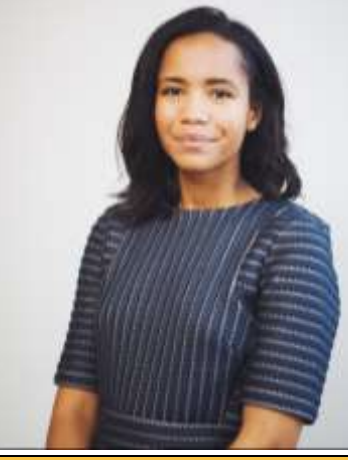
Name: Kiese Hansen ‘15
Title: Program Associate
Employer: Aspen Institute Financial Security Program
Major: Economics
What do you enjoy most about your current position?
Some of the best advice I have received over the last few years has revolved around the value of building a network and finding good people who will provide valuable support through advice and mentorship. Many of the programs at the Aspen Institute, including the program I work for, primarily serve as nonpartisan conveners. By definition, I work with individuals on both sides of the aisle and across different sectors – from the nonprofit world, to academia, to both small and large financial institutions. It's a rewarding environment to be in as a young professional because you get to meet and interact with experts who come from a range of backgrounds, which has helped me achieve a better understanding of what I want out of my career in the short- and long-term.
What is a typical work day like?
When I first started working for my team about 2 years ago, I was considered more of a “jack of all trades.” My job included a mix of communications, social media, event planning, and logistics. Over time, my role has evolved to include more project management and content development. My team hosts anywhere from 20-30 public and/or private events a year, and my day-to-day work changes depending on the event we are preparing for next. I’m lucky in that I get to travel as well and have hosted conversations in a variety of cities across the country.
Which undergraduate experiences did you find most helpful in preparing you for your position?
I spent my junior year abroad in Brazil. My first semester there, I completed a formal study abroad program at the University of Santa Catarina in Florianopolis, Brazil. The second semester, I had a full-time internship with the Department of State at the US Embassy in the country’s capital, Brasilia. While I now work in domestic economic policy, I found that the “life” skills I learned during my year abroad have helped me tremendously in the workplace. In having to learn a new language, I learned to be patient, and patience is key when you’re working across different organizations, with different stakeholders, and in planning events. From my time at State, I learned how to be “on” eight hours a day, 40 hours a week. Working full-time requires a different amount of energy than school or the part-time internships I had.
How has your coursework helped you in your current position?
My coursework as an Economics major introduced me to world that has now become my every day. My interest in domestic economic inequality grew throughout my undergraduate career and was cemented during my last semester when I took a great labor economics class. I remember thinking, “This! This is what I am interested in and care about.” My job has only helped me narrow this interest and it’s been fun to watch it evolve. I can now confidently say that I hope to make a career working to better understand wealth inequality in the United States, particularly as it intersects with race and gender.
Any job or internship advice?
- Learn as much as possible from your experienced colleagues! Contribute your thoughts and opinions, but remember to respect the experience of those who have been in the field longer than you.
- Make yourself invaluable.
- Be enthusiastic and be someone your colleagues trust and want to work with.
- Your main goals should be to learn a lot while also building relationships with people who can and will want to provide mentorship to you as you continue on in your career.
- Final piece of advice:
- 1. Graduate school: If you know you would like to go to graduate school but are any bit uncertain about what you hope to study, work for a few years before going back! I have greatly appreciated my time off and now have a better idea of what I want to study and will be a more focused and better graduate student as a result.
- 2. A curveball of more concrete advice: don’t disclose your previous salary, if at all possible. Tell companies/organizations that you are confident they will pay you what they are capable of based on your experience. Salaries from organization to organization vary greatly, and disclosing could potentially put you in a position that perpetuates an unfair wage gap.
- 3. Post-grad advice: The change can feel daunting, but embrace it. College is fun and rewarding, but your life post-college can be just as fun and rewarding, if not more so. I’ve found that the people you surround yourself with have the biggest impact on your wellbeing. Surround yourself with good people both in and outside of the workplace, and you’ll meet with success.

